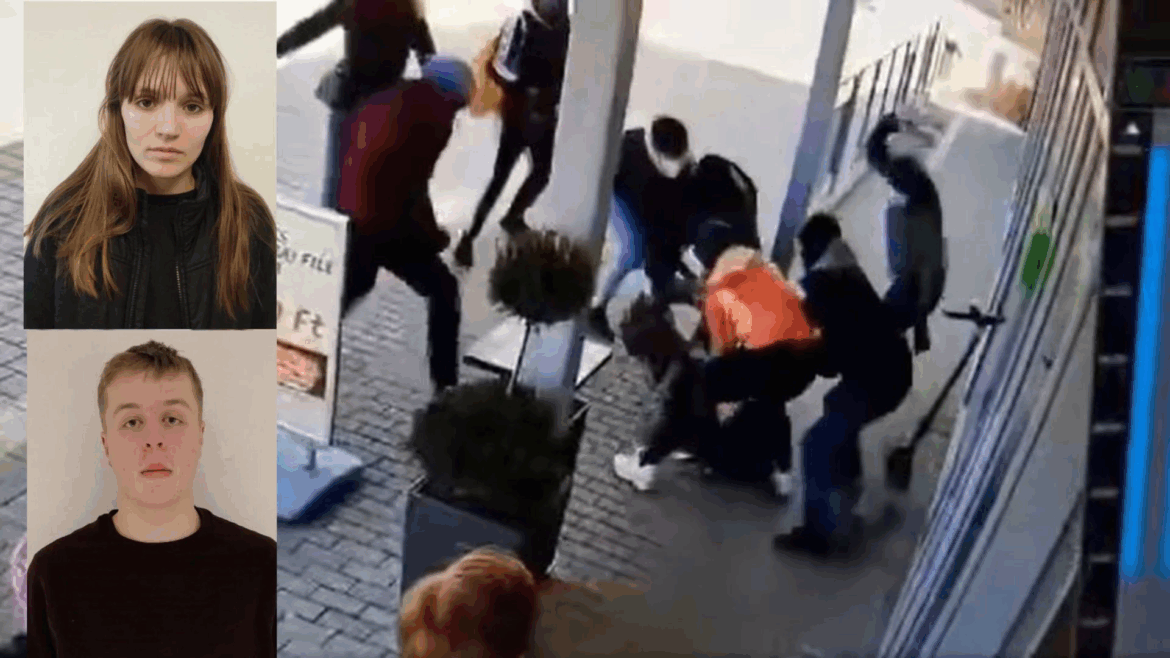Germany Rocked by Outrage as Accused Left-Wing Extremist Awarded Nearly €50,000 in Taxpayer-Funded Art Prizes
Germany is facing growing national backlash after it was revealed that Hanna Schiller, a far-left art student currently in pre-trial detention for a series of violent political attacks, has been awarded nearly €50,000 in public arts funding while awaiting trial on attempted murder charges.
Accused of Violent Antifa-Affiliated Attacks
Schiller, a student at the Academy of Fine Arts Nuremberg, stands accused of participating in multiple violent assaults across Europe as a member of the radical-left militant group known as the “Hammer Gang.” She is charged with attempted murder following a February 2024 assault in Budapest, where prosecutors say she and other militants attacked civilians they believed were political opponents. One victim was reportedly struck more than 15 times with a baton, an attack described as near-fatal.
The gang, composed of far-left extremists from Germany, Italy, and Greece, carried out coordinated attacks on eight civilians at four different locations during what authorities now characterize as ideologically driven street violence.
Public Money, Private Outrage
Despite these charges, Schiller was named one of the recipients of Germany’s prestigious Federal Prize for Art Students, an honor carrying €30,000 in prize money and an additional €18,000 scholarship for an upcoming exhibition. Both grants are funded by the Federal Ministry of Education and the German Students’ Union, prompting widespread condemnation.
Her artwork, which includes controversial pieces made from human hair and materials symbolizing “oppressive structures,” was lauded by the selection jury as a “precise and critical engagement with structural violence.”
“Rewarding Extremism?” — Political Fallout Grows
Critics, including lawmakers and public intellectuals, have slammed the award as a tone-deaf endorsement of political extremism. Alice Weidel, co-leader of the conservative Alternative for Germany (AfD) party, called it “a grotesque misuse of public money,” and argued the prize may have been awarded because of Schiller’s political radicalism—not in spite of it.
“No taxpayer money for violent left-wing extremism!” Weidel wrote on social media.
The Academy of Fine Arts Nuremberg, where Schiller remains enrolled, defended the decision, citing the legal principle of presumption of innocence. A written statement from the school said:
“We treat her like any other student until a verdict is announced.”
That stance has provoked further criticism, given the school’s stated opposition to “all forms of extremism and political violence.”
Broader Concerns About Rising Far-Left Militancy
Schiller is not the only figure in the spotlight. Several other Hammer Gang members have already faced trial or conviction. In 2023, Lina Engel, another prominent member, was sentenced to over five years in prison. Others have faced lesser penalties, while the group’s alleged leader, Johann Guntermann, was arrested in 2024 after a years-long manhunt.
Meanwhile, Italian MEP Ilaria Salis, dubbed “Hammer Girl,” has used her parliamentary immunity to avoid prosecution for her own alleged involvement in similar Budapest assaults. She was arrested in Hungary, but has since been released due to her position in the European Parliament.
Cultural Institutions Under Fire
The controversy has reignited debate in Germany over the growing radicalism within academic and artistic institutions, many of which receive direct government support. Critics argue that state-funded cultural programs are failing to uphold their own standards by honoring individuals accused of heinous crimes.
Despite the firestorm, neither the Federal Ministry of Education nor the Nuremberg Fine Arts Academy has taken steps to rescind Schiller’s award or block the disbursement of funds.
As the trial approaches, Schiller remains in pre-trial detention, and public scrutiny is only intensifying.
The outcome of her case—and whether Germany’s cultural establishment will confront its role in this unfolding scandal—could have lasting implications for how nations balance artistic freedom, political activism, and public accountability.

